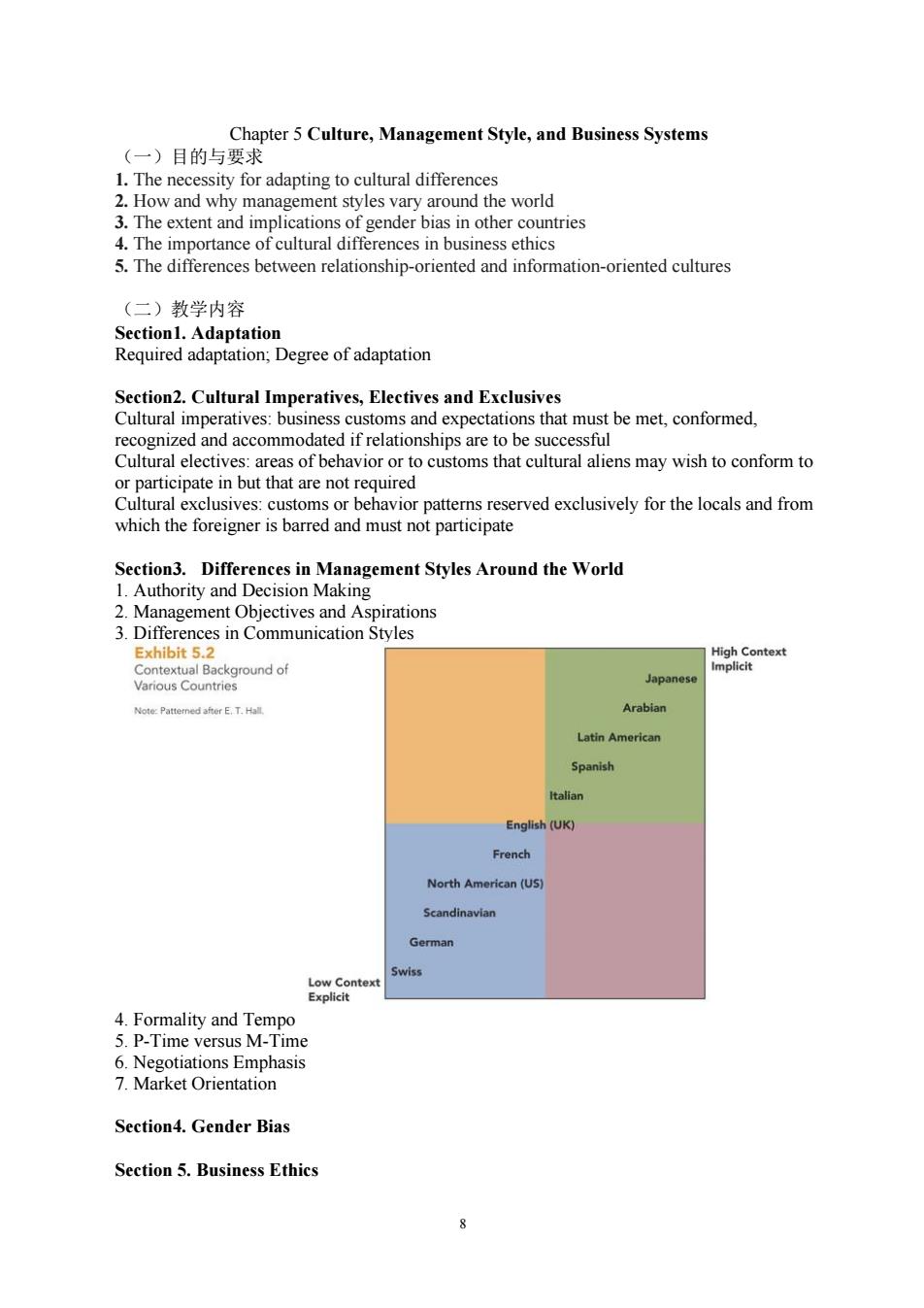正在加载图片...

Chapter 5 Culture,Management Style,and Business Systems (一)目的与要求 1.The necessity for adapting to cultural differences 2.How and why management styles vary around the world 3.The extent and implications of gender bias in other countries 4.The importance of cultural differences in business ethics 5.The differences between relationship-oriented and information-oriented cultures (二)教学内容 Section1.Adaptation Required adaptation;Degree of adaptation Section2.Cultural Imperatives,Electives and Exclusives Cultural imperatives:busines custo ms and expectations that must be met,conformed, accommodated rela onships are to as of behavior or t are no rved exclusively for the locals and from eris barred and must not participate Section3.Differences in Management Styles Around the World 1.Authority and Decision Making 2.Management Objectives and Aspirations 3.Differences in Communication Styles Exhibit 5. Wescagoundof Note:Pattered aftor E.T.Hall. Arabia Latin Americar Spanish taliar h(UK French North American(US Scandinavian German wis 4.Formality and Tempo 5.P-Time versus M-Time Section4.Gender Bias Section 5.Business Ethics8 Chapter 5 Culture, Management Style, and Business Systems (一)目的与要求 1. The necessity for adapting to cultural differences 2. How and why management styles vary around the world 3. The extent and implications of gender bias in other countries 4. The importance of cultural differences in business ethics 5. The differences between relationship-oriented and information-oriented cultures (二)教学内容 Section1. Adaptation Required adaptation; Degree of adaptation Section2. Cultural Imperatives, Electives and Exclusives Cultural imperatives: business customs and expectations that must be met, conformed, recognized and accommodated if relationships are to be successful Cultural electives: areas of behavior or to customs that cultural aliens may wish to conform to or participate in but that are not required Cultural exclusives: customs or behavior patterns reserved exclusively for the locals and from which the foreigner is barred and must not participate Section3. Differences in Management Styles Around the World 1. Authority and Decision Making 2. Management Objectives and Aspirations 3. Differences in Communication Styles 4. Formality and Tempo 5. P-Time versus M-Time 6. Negotiations Emphasis 7. Market Orientation Section4. Gender Bias Section 5. Business Ethics